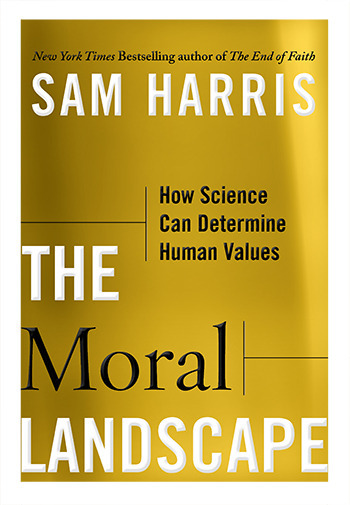The Moral Landscape Challenge

It has been nearly three years since The Moral Landscape was first published in English, and in that time it has been attacked by readers and nonreaders alike. Many seem to have judged from the resulting cacophony that the book’s central thesis was easily refuted. However, I have yet to encounter a substantial criticism that I feel was not adequately answered in the book itself (and in subsequent talks).
So I would like to issue a public challenge. Anyone who believes that my case for a scientific understanding of morality is mistaken is invited to prove it in 1,000 words or less. (You must refute the central argument of the book—not peripheral issues.) The best response will be published on this website, and its author will receive $1,000. If any essay actually persuades me, however, its author will receive $10,000, and I will publicly recant my view.
Submissions will be accepted here the week of February 2-9, 2014.
Note 9/1/13: A generous reader has made a matching pledge, so the prize money has now doubled to $2,000 and $20,000.
FAQ
1. You have said that these essays must attack the “central argument” of your book. What do you consider that to be?
Here it is: Morality and values depend on the existence of conscious minds—and specifically on the fact that such minds can experience various forms of well-being and suffering in this universe. Conscious minds and their states are natural phenomena, fully constrained by the laws of Nature (whatever these turn out to be in the end). Therefore, there must be right and wrong answers to questions of morality and values that potentially fall within the purview of science. On this view, some people and cultures will be right (to a greater or lesser degree), and some will be wrong, with respect to what they deem important in life.
You might want to read what I’ve already written in response to a few critics. (A version of this article became the Afterword to the paperback edition of The Moral Landscape.) I also recommend you watch the talk that I linked to above.
2. Can you give some guidance as to what you would consider a proper demolition of your thesis?
If you show that my “worst possible misery for everyone” argument fails, or that other branches of science are self-justifying in a way that a science of morality could never be, or that my analogy to a landscape of multiple peaks and valleys is fundamentally flawed, or that the fact/value distinction holds in a way that I haven’t yet understood—you stand a very good chance of torpedoing my argument and changing my mind.
3. What sort of criticism is likely to be ineffective?
You will definitely not win this prize if you fail to notice the distinction I make between finding answers in practice and there being answers in principle, if you define science in narrow terms to mean doing the former while wearing a white lab coat, if you imagine that my thesis entails that scientists are more moral than farmers and bricklayers, or if, like the philosopher Patricia Churchland, you do all of those things with an air of scornful pomposity appropriate to a Monty Python routine.

Sam Harris's Blog
- Sam Harris's profile
- 8954 followers



